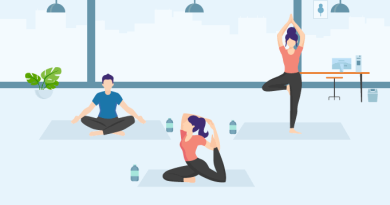Is sleep now a commodity?
[ad_1]
There are mattresses, apps, supplements, masks, teas, essential oils: all promising good sleep. But are we buying them without examining the root cause of the problem?
About a decade ago, I was privy to a meeting where a company that sells diapers said they would like to focus on sleep and put out communication around it. The reason: it was found that babies’ development happened when they were at rest. Frequent urinating into a cloth nappy would wake them up, interrupting sleep and hence growth. By marrying diapers and sleep, they were putting a cost, not on convenience, but on early childhood development, rendering a costly product inexpensive in parents’ eyes.
Over the years, in an adrenaline-high world that runs on stimulants (coffee, cigarettes, stress) and the boast of ‘burning the midnight oil’, we have found the need to advocate for sleep. It gives our bodies time to repair, our brains the rest to consolidate memory, and our hormones the chance to regulate themselves, affecting hunger and circadian rhythms (our natural body clock). A lack of sleep is the reason those on a night shift feel a greater need for junk and oil-laden food. It is the body desperately trying to cope with a situation that is not natural to it.
Increasingly, people are understanding the importance of a good night’s rest. Riding on any self-awareness movement though, is marketing, pushing the message ahead with a momentum that only money can buy. To some extent it is the resources sunk into a health message that takes it to everyone, but it also convinces us to buy into products that purportedly aid in the endeavour.
There are mattresses, apps, supplements, white noise machines, masks, teas, essential oils, ear plugs, nose clips, anti-snore chin straps, and more — all promise help. There is nothing wrong with most of the products marketed around rest, except for certain creams and sprays, the ingredients of which you may want to read on the back of the pack.
But there is a danger of us buying into them without looking deeper within to examine why we have a problem with sleep. Am I in a state of hyperstress — overloaded with work to the extent that a small trigger can become a big episode? Anxiety ridden? Do I have sleep apnoea? An addiction — even if it is to tech? Why am I not able to have nights of uninterrupted sleep for eight hours? Sleep, like most things in life, is a consequence of how we operate through the day, our activity, thoughts, interactions with those around us. If we hold on to poor routines, habits, and relationships, all the white noise machines and self-affirmation apps in the world will only be band-aids that simply do not address the real reason we are not sleeping well and get up feeling refreshed.
[ad_2]
Source link

